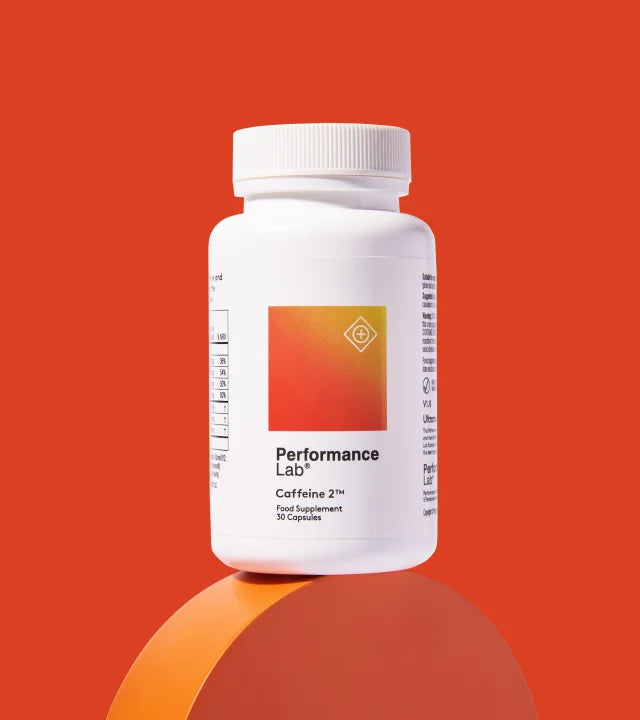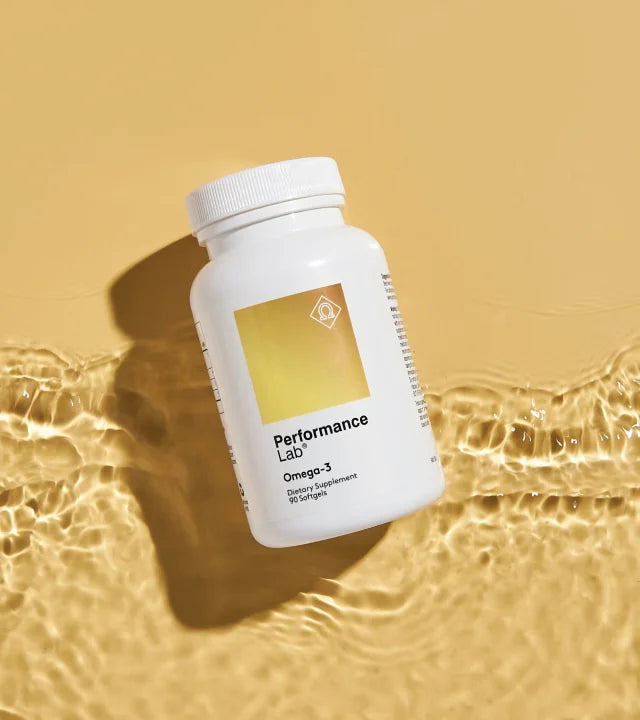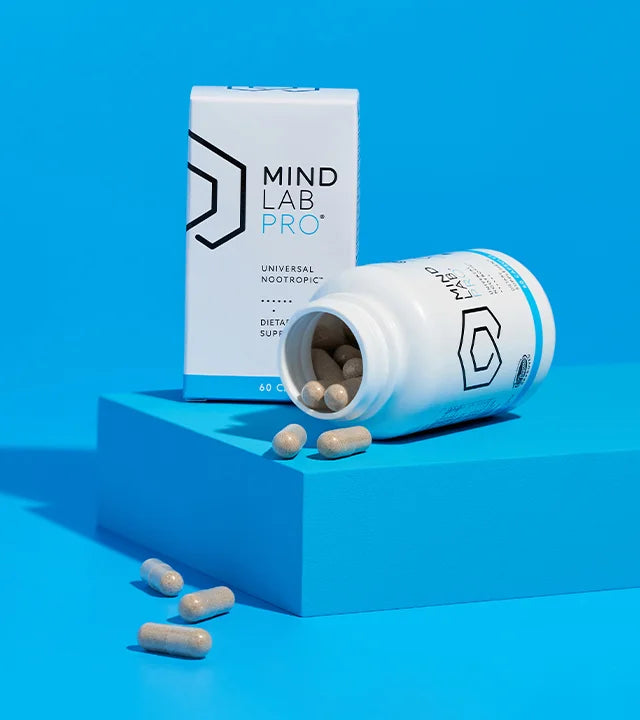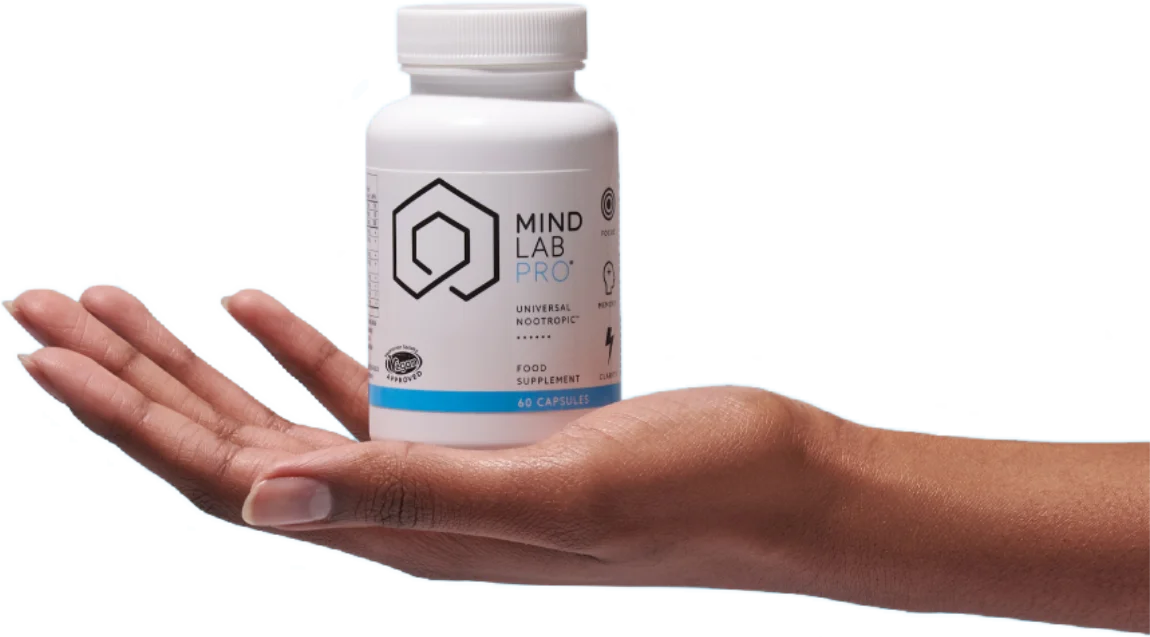Short-term memory (also called active memory) can hold a small amount of information in a readily available state for a brief period of time. Nootropics for short-term memory can enhance this cognitive function in several ways.
This guide covers how natural nootropics for short-term memory support a key cognitive function for success in many areas of life that is used all day, every day, in nearly every situation. Let's get to it!
Key Takeaways
- Short-term memory is a “scratch pad” that briefly holds small amounts of information (15–30 seconds).
- It supports immediate use of info without long-term storage and feeds into working memory, which adds active processing to the mix.
- Short-term memory is important for comprehension, decision making and learning, and also acts as a gateway to long-term memory.
- Nootropics are cognitive enhancers; brain health-boosting compounds that help various mental functions, including memory.
- Nootropics may help short-term memory via support for brain energy, neurotransmitters, nerve growth factor, cerebral blood flow, stress resistance and more.
Disclaimer
This article is for educational purposes only and is not medical advice. Nootropics can interact with medications and underlying conditions, and their effects vary by person—especially when correcting nutrient deficiencies. Always talk with a qualified healthcare professional before starting, stopping, or combining any supplement. Supplements are not intended to diagnose, treat, cure, or prevent disease and should not replace proven fundamentals like sleep, exercise, balanced nutrition, and clinical care.
What is Short-Term Memory?
Short-term memory is a limited-capacity store that holds a small amount of information for a brief period (roughly 15–30 seconds) so it can be used immediately before it’s forgotten or transferred to long-term memory. We use short-term memory, specifically, for everyday things, for example:
- Remembering a new phone number just long enough to dial it.
- Keeping a Wi-Fi password in mind while typing it in.
- Recalling someone’s name seconds after an introduction.
- Technology-related tasks like coding or programming.
- Keeping a short grocery list in mind while walking to the aisle.
- Nootropics for job interviews can help you nail your next interview.
- Remembering your parking spot number until you reach the elevator.
- Keeping a question in mind while formulating your response.
Two types of short-term memory are engaged during the storage phase: sensory memory and working memory.
1. Sensory Memory
Sensory memory is what most people are actually referring to when they think of short-term memory. Sensory memory is the first function of memory, filtering incoming stimulus and deciding whether the information is important or not.
Lightning fast, it generally processes one to three bits of information at a time, storing them in a unilateral location for three to four seconds at most.
2. Working Memory
If information is deemed valuable enough, sensory memory sends it on to working memory. Working memory can manipulate the information in the present and can retain around seven pieces of information at a time.
Working memory stores information throughout several different brain locations, depending on the type of information, and it can last for up to 30 seconds with memory rehearsal. Verbal (phonological) techniques like repeating a person’s name or telephone number out loud can help ensure information gets transferred from sensory memories to working memory.
Check out the best nootropics for memory overall (not just short-term)
Short-Term Memory vs. Working Memory
Short-term memory (STM) and working memory (WM) are closely related, but they serve different roles. STM is the mind’s brief holding area: it keeps a small amount of information available for a few seconds. Working memory goes a step further. It doesn’t just hold information; it holds and works with it.
WM is the system you use to keep information active while you manipulate it to achieve a goal -- solving a math problem in your head, following multi-step directions while updating them on the fly, or comparing items on a mental checklist. In other words, STM is mainly storage, whereas WM is storage plus real-time processing.
Put simply: STM is what lets you keep information briefly; WM is what lets you keep and use it to think, plan, and act.
Semantic memory, or long-term memory, is more about storage of general knowledge, concepts and facts.
How Short-Term Memory Works
Decay
Short-term memory’s limited duration suggests that its contents automatically decay over time. The idea of rapid subconscious rehearsal usually accompanies the decay assumption: in order to extend working memory, information must be periodically repeated or rehearsed either verbally or mentally, causing it to re-enter short-term memory storage and remain accessible longer.
However, some researchers deny that spontaneous decay plays any major role in short-term memory duration. Detractors suggest that new stimuli competes for space when it enters short-term memory, pushing out older information.(1)
Chunking
Chunking is a memory recall process that can enhance our ability to remember information in the short term by organizing separate pieces of information into groups.
The average person generally stores four to five different pieces of information at a time in short-term memory but chunking can markedly increase short-term recall capacity.
In one study, both master and novice chess players were shown either a board in play or a board with randomly placed pieces. Afterward, players were presented with an empty board and were asked to arrange it in the exact pattern of the previous board.
With the in-play game board, novice players correctly placed only four or five pieces out of 32, while masters placed an average 26. But both master and novice players had problems arranging the random board, only correctly placing four or five pieces. These results suggest that chunking is a highly effective cognitive tool for boosting short-term memory recall.(2)
Grandmaster chess players “chunk” up to 600,000 different combinations of chess piece patterns. Chunking helps players rapidly choose a particular move or strategy in the moment based on prior experience. Nootropics for chess can help improve this short-term memory process.
Short-Term Memory and Brain Structure
The ability to store information temporarily and manipulate it to complete a task is a distinctively human trait. Like other higher-order cognitive functions, short-term memory activates several brain areas and systems.
Pre-frontal Cortex: The prefrontal cortex (PFC) sits at the very front of the brain. The PFC lights up during short-term memory activation, particularly working memory, specifically visuospatial memory.
Hippocampus: The hippocampus sorts and directs the information going to and from your brain, sending it to various “storage rooms” throughout the brain according to the type of information. The hippocampus gives new information priority. When the hippocampus goes into short-term memory mode, previously encoded and stored memories stay in the background, while new information is sorted and committed to memory.
Nootropics for Nerve Growth Factor can support hippocampal processes related to memory maintenance.
Acetylcholine: Because of its prominent role in supporting memory, acetylcholine is sometimes called the “learning neurotransmitter.” ACh is crucial for short-term memory retention, and even a small boost in the cholinergic system can impact memory function. ACh triggers release of the neurotransmitter glutamate. Glutamate activates inhibitory neurons which block pathways that monitor memory retrieval.
- Studies suggest that "glutamate release within 2.5 minutes of the learning experience is an important feature of short-term memory formation."(3)
Best Nootropics for Short-Term Memory
These nootropics are powerful memory boosters that can enhance the way we process information for short-term memory:
Phosphatidyslerine

Phosphatidylserine (PS) is an amino acid that improves learning and short-term memory formation by reducing the effects of stress on cellular structure and cell membrane fluidity. PS and other phospholipids protect cell membrane integrity, support cellular transmission, and facilitate neuronal growth.
Phosphatidylserine in brain supplements may slow or even reverse age-related memory decline, but it isn't just for seniors. PS enhances short-term memory formation for younger adults too.
- Studies show PS "supports human cognitive functions, including the formation of short-term memory...the ability to create new memories, the ability to retrieve memories, the ability to learn and recall information."(4)
Many people don’t get enough phosphatidylserine from food sources, so supplements that include PS can provide the phospholipid protection neurons involved with short-term memory need.
More on Mind Lab Pro® Phosphatidylserine
Citicoline

Citicoline (cytidine diphosphate-choline) is a cholinergic agent and a precursor to acetylcholine synthesis (Ach). ACh is essential for short-term memory retention, and studies indicate citicoline may be the best nootropic for dealing with mild to moderate memory problems.
- Randomized, controlled trials show citicoline administration can improve neurochemical, electrophysiological, and cognitive function for better short-term memory in healthy human brains.(5)
Even a small drop in choline levels can cause noticeable short-term memory issues, and like PS, many people don’t get enough choline from nutrition alone.
Citicoline contains CDP choline, a naturally-occurring chemical that enhances short-term memory and protects the brain from the negative effects of stress. On its own, CDP choline is a powerful protectant, but it becomes a dynamic potentiator when combined with other nootropics like PS and uridine.
Citicoline combines CDP choline with uridine monophosphate (UMP), an often overlooked but vital nootropic that not only improves short-term memory but is the foundation for RNA – the building blocks of cell memory and carbon-based intelligence.
Large amounts of RNA are used up in the memory process, and uridine supports RNA repletion while boosting hippocampal synaptic connections – the same ones that become depleted in the early stages of persistent short-term memory loss.(6)
*Tip: Look for Cognizin® citicoline. It is the highest-quality, most evidence-backed form of citicoline used by premium brain supplements.
More on Mind Lab Pro® Citicoline
Bacopa Monnieri

Bacopa monnieri is an adaptogenic herb used in Ayurvedic healing for centuries, and it is one of the best nootropics that works as a short-term memory enhancer. Bacopa works by modulating levels of dopamine and serotonin in the brain, but its main value to memory lies in its ability to enhance cell communication.
Bacopa increases the growth of dendrites – nerve endings that line the neuronal pathways used in short-term memory communication. Dendrites improve synaptic plasticity and the brain's ability to process information faster and more accurately.
- A randomized, double-blind, placebo-controlled study of 62 healthy persons aged 20 to 60 suggested memory improvement: bacopa supplementation enhanced working memory and precision during rapid identification tests.(7)
Bacopa can improve memory formation across all adult age groups, but experts recommend regular, long-term supplementation (six weeks or more) for the best results.
More on Mind Lab Pro® Bacopa Monnieri
N-Acetyl L-Tyrosine (NALT)

L-Tyrosine is an amino acid involved with cell communication, and NALT is a more bioavailable form the brain can absorb better.
L-Tyrosine has been shown to fight memory decline associated with stress and burnout. NALT's value as a nootropic for short-term memory is specific to preserving working memory, especially under pressure. Its cognitive enhancement benefits go beyond memory, and appear to be most pronounced under stress.
Research suggests L-Tyrosine can increase memory-supporting norepinephrine levels in the hippocampus, which can become depleted under stress and contribute to working memory decay.
- One small, double-blind study involving 8 male test subjects over a 24-hour period demonstrated that tyrosine can "preserve working memory (via matching accuracy tests) during acute cold stress."(8)
More on Mind Lab Pro® N-Acetyl L-Tyrosine
Vitamin B6

B6 assists myelin sheath formation, the membrane that surrounds neuronal axons and helps facilitate communication between neurons.
The myelin sheath is important to memory because it speeds up electrical impulses that fuel information sharing throughout the brain, allowing you to recall short-term memories faster and retain them longer.
Another way B6 can boost short term memory is by lowering homocysteine levels. Homocysteine is a non-protein amino acid that occurs naturally in all humans.
Vitamin B6 helps regulate homocysteine levels in the blood-brain barrier.
At normal levels it doesn’t harm memory, but high levels of homocysteine are linked to brain-blood blockages and poor memory, including chronic short-term memory loss.
- In a 2014 study linked chronic, severe short-term memory loss with high homocysteine levels and low levels of B6.(9)
The body does not store folate, so increasing your daily B6 intake can keep homocysteine in check and boost short-term memory function.
Research has also found a correlation between B6 and information storage – and important mechanism in prolonging short-term memory.
- A placebo-controlled study of 76 men aged 70 – 79 years suggested better memory retention with men who took B6 supplementation over men who were given a placebo. Researchers concluded, “vitamin B-6 supplementation improves storage of information modestly but significantly.”(10)
And B6 increases levels of brain chemicals like serotonin in the brain. Many people know that serotonin is a natural mood booster, but having adequate serotonin levels in the brain is also important for processing short-term memory.
More on Mind Lab Pro® Vitamin B6
L-Theanine + Caffeine for Short-Term Memory

Theanine (the calming amino acid from tea) pairs naturally with caffeine to create a “calm alertness” that’s well suited to short-term and working-memory tasks. While caffeine blocks adenosine to heighten vigilance, L-theanine helps smooth jitteriness and supports focused attention while fighting mental fatigue -- making it easier to hold and manipulate information without getting derailed by distractions.
In a randomized, double-blind, placebo-controlled crossover trial, healthy adults received 100 mg L-theanine plus 50 mg caffeine. Researchers reported that at the 60 minute mark, the L-Theanine + Caffeine combo improved attention-switching speed and accuracy and reduced susceptibility to distraction on a memory task versus caffeine alone or placebo; benefits on distractibility persisted at 90 minutes. This pattern suggests potential to support cognitive function for brief, high-focus work that taxes short-term/working memory.(11)
Discover the top-rated caffeine pill with L-Theanine
Performance Lab® Caffeine 2
Smooth energy. Clarity. Focus. No jitters. No burnout. No crash.
Shop Now
Omega-3 (DHA)

DHA, the omega-3 fat most concentrated in brain cell membranes, supports synaptic signaling and membrane fluidity -- the very foundations for short-term/working memory. DHA also plays a role in promoting neuroplasticity and protecting brain cells against cognitive decline, further supporting memory and overall cognition.
In a 6-month, randomized, double-blind, placebo-controlled trial of 176 healthy adults (18–45) with low dietary DHA, daily 1.16 g DHA improved reaction times for episodic and working-memory tasks versus placebo; episodic memory gains were most evident in women, while working-memory speed improved notably in men -- evidence that DHA can sharpen short-term/working-memory performance in everyday settings.(12)
Get ultramodern, eco-friendly and vegan Omega-3 fatty acids

Tips to Boost Short-Term Memory Naturally
Learning supports synaptic plasticity and transmission, and challenging your brain with new information promotes short-term memory.
You can enhance short-term memory in many additional ways, including:
- Reading
- Solving puzzles like sudoku and crosswords
- Playing strategy games like chess
- E-sports and video gaming
- Playing word games like scrabble
- Learning to play an instrument
- Eating healthy food
- Exercising regularly
- Maintaining regular sleep patterns
- Supplementing with nootropics for short-term memory
Best Nootropic Stack for Short Term Memory: Mind Lab Pro®

Mind Lab Pro® Ingredients: Citicoline (CDP Choline) dosage 250mg per serving, Phosphatidylserine (PS) 100mg (from sunflower lecithin), Bacopa monnieri 150mg (24% bacosides), Organic Lion's Mane Mushroom 500mg (fruit and mycelium), Maritime Pine Bark Extract 75mg (95% proanthocyanidins), N-Acetyl L-Tyrosine 175mg, L-Theanine 100mg per serving, Rhodiola rosea 50mg (3% rosavins and 1% salidrosides), NutriGenesis® Vitamin B6 (2.5 mg), Vitamin B9 (100 mcg), Vitamin B12 (7.5 mcg)
Mind Lab Pro® (MLP®) is today's top nootropic supplement. It includes 11 research-backed nootropics, carefully curated and combined to unleash peak brain power while nourishing overall brain health.
MLP's ultramodern design helps several brain functions, working to boost focus, mental clarity, energy, attention, mood, mental health, motivation and many other cognitive abilities.
And yes, MLP includes several of the best nootropic nutrients for short-term memory enhancement, specifically. It has also been shown to improve memory in well-designed human research.
Best Nootropic for Memory Recall
Part of Mind Lab Pro®'s full-spectrum memory boost is unique support for recall memory: a type of memory retrieval that involves accessing information without the help of any cues. Essentially, it's the process of pulling a memory from storage entirely on your own. It is considered one of the most difficult forms of memory retrieval.
Mind Lab Pro® is a research-backed nootropic stack.
Unlike many brain supplements that claim cognitive benefits, Mind Lab Pro really works according to science. It has improved cognitive function in three well-designed randomized clinical trials (human), including one study focusing on memory specifically:
- Study 1: 30 days of MLP supplementation appeared to significantly improve information processing speed (compared to placebo).(13)
- Study 2: 30 days of MLP enhances performance across all memory functions tested (versus placebo), especially immediate and delayed recall memory.(14)
- Study 3: 60 days of MLP was shown to help the brain's different regions to work together as a team more efficiently.(15)
Read the full story on Mind Lab Pro clinical studies

Summary
Short-term memory can affect your work performance, focus, college studies, mental processing, relationships, and sports success. Nootropics for short-term memory can ensure your mind is functioning at its best all day long.
Mind Lab Pro® nootropics for short-term memory contribute to its 100% Brainpower™ effect for whole-life cognitive excellence.
Mind Lab Pro® is a whole-brain-boosting Universal Nootropic™ stack that combines the best memory boosters to unlock 100% Brainpower™, an optimal mental state that can protect short-term memory for peak performance in any situation.
Mind Lab Pro®'s whole-brain approach supports cognitive health and communication throughout the brain by monitoring neural pathways, protecting brain cell membranes, and fighting stress-induced neurotransmitter deterioration that can affect short-term memory.
Short-term memory affects every aspect of our life. From sending Mom a birthday card, to making a left at Sixth Avenue or remembering to pick up bread on the way home, we use short-term memory all the time.
Mind Lab Pro® is the top dietary supplement to boost memory, including short-term memroy, along with multiple other cognitive enhancing effects to help you function better in a fast-paced world all day, every day.
References
- Oberauer K, Klieg R. "A formal model of capacity limits in working memory". Journal of Memory and Language. 2006. 55 (4): 601–626. Link
- Simon HA & Chase WG. Skill in chess. American Scientist. 1973. 61(4), 394-403. Link
- Gibbs ME, Hertz L, Ng KT. Inhibition of short-term memory formation in the chick by blockade of extracellular glutamate uptake. Neurobiol Learn Mem. 2004 Mar. 81(2):115-9. Link
- Glade MJ, Smith K. Phosphatidylserine and the human brain. Nutrition. 2015 Jun;31(6):781-6. Link
- Grieb P. Citicoline: A Food That May Improve Memory. Med Sci Rev 2015; 2:67-72. Link
- Selkoe DJ. Alzheimer's disease is a synaptic failure. Science. 2002 Oct 25;298(5594):789-91. Link
- Stough C, et al. Examining the nootropic effects of a special extract of Bacopa monniera on human cognitive functioning: 90 day double-blind placebo-controlled randomized trial. Phytother Res. 2008 Dec;22(12):1629-34. Link
- Shurtleff D, et al. Tyrosine reverses a cold-induced working memory deficit in humans. Pharmacol Biochem Behav. 1994 Apr;47(4):935-41. Link
- Kim H, Lee KJ. Serum homocysteine levels are correlated with behavioral and psychological symptoms of Alzheimer's disease. Neuropsychiatr Dis Treat. 2014 Oct 3;10:1887-96. Link
- Deijen JB, van der Beek EJ, Orlebeke JF, van den Berg H. Vitamin B-6 supplementation in elderly men: effects on mood, memory, performance and mental effort. Psychopharmacology (Berl). 1992;109(4):489-96. Link
- Owen, G. N., Parnell, H., De Bruin, E. A., & Rycroft, J. A. (2008). The combined effects of L-theanine and caffeine on cognitive performance and mood. Nutritional Neuroscience, 11(4), 193–198. Link
- Stonehouse, W., Conlon, C. A., Podd, J., Hill, S. R., Minihane, A.-M., Haskell, C., & Kennedy, D. (2013). DHA supplementation improved both memory and reaction time in healthy young adults: A randomized controlled trial. The American Journal of Clinical Nutrition, 97(5), 1134–1143. Link
- Utley A, Gonzalez Y, Imboden CA. The Efficacy of A Nootropic Supplement on Information Processing in Adults: A Double Blind, Placebo Controlled Study. Biomed J Sci & Tech Res 49(1)-2023. BJSTR. MS.ID.007746. Link
- Abbott-Imboden C., Gonzalez Y., Utley A. (2023). Efficacy of the nootropic supplement Mind Lab Pro on memory in adults: Double blind, placebo-controlled study. Human Psychopharmacology: Clinical and Experimental, e2872. Link
- O’Reilly, D., Bolam, J., Delis, I., & Utley, A. (2025). Effect of a Plant-Based Nootropic Supplement on Perceptual Decision-Making and Brain Network Interdependencies: A Randomised, Double-Blinded, and Placebo-Controlled Study. Brain Sciences, 15(3), 226. Link

